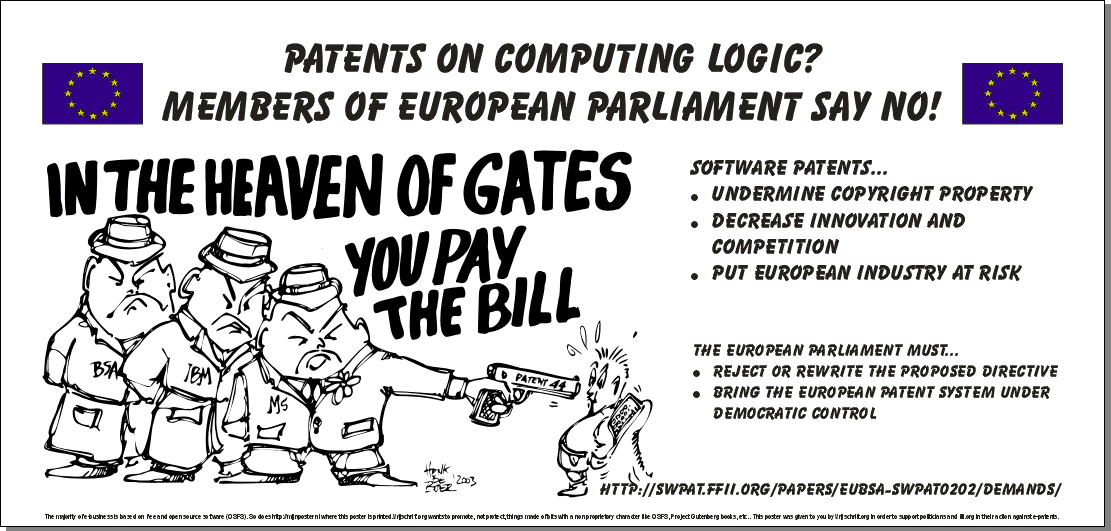|
karlsruhe or when the absurdity of patents is not endorsed by economists and academic technologists just got back from karlsruhe, germany where i spent the last 6 days. i had to make a short presentation [pdf. 111KB] premised on the intersections of peer-to-peer, schumpeter's theory of creative destruction, and the methodology of leontief's input/output economics. however, the discussion quickly turned to patents, their social legitimacy and economic justification. there i was, presenting to a group of scholastic economists and academic technologists, trying to explain why patents, among several related insitutionalised mechanisms (see perpetual character of copyright law), threaten to imprison a world of radical new opportunities, and that, ultimately, they're counterproductive to the engines of innovation that have been the motor of growth of capitalim. they asked me if the patent system is absurd. i replied that yes, it is. then they asked me if what i actually meant to say is that the process by which a patent is assigned to a party is absurd. i told them that yes, the process by which an application for a patent is processed and examined is absurd due to the transaction costs involved and the asymmetries of information that are being created in its periphery as a direct result of the procedures followed, but i also explained that we can't say that the current scope of activities and the mechanisms of the patent system are absurd and at the same time claim that the patent system works allright as a whole. this would be insane - an act of lunacy. besides, the medium is the message in the sense that those absurdities are indeed the product, and the quintessence, of the patent system as it stands now, rather than an accidental anomaly or a deviation from the norm of the system in concern. they were not very much supportive of my view. i find it very hard to understand how some economists and technologists continue supporting the patent system when: 1. IBM has a patent on how to employ FS/OSS developers !!!!!!!!!!!!!!!!!!!!!!!!!!!! "Intellectual property law is standing in for employment contract law. The furthest case in formalising the labour relations of the Open Source model has been achieved by the U.S. patent 6,658,642, which IBM was granted in 2003. It describes an Open Source model for requiting and rewarding free/open programmers. The appeal of this model, IBM attests in their patent application, is that it allows them to draw from a world-wide pool of programmers while lowering the cost for software development. Those who doubt that FOSS development could potentially undermine the position of in-housed, waged labour, is of a different mind than are the managers at IBM." 2. BT has a patent on hypertext!!!!!!!!!!!!!!!!!!!!!!!!!!!! 3. Amazon has a patent on 1-click!!!!!!!!!!!!!!!!!!!!!!!! and i'm sure those three cases are only scratching the surface of how deep the absurdity of the patent system goes.......... 4:30:05 PM |




